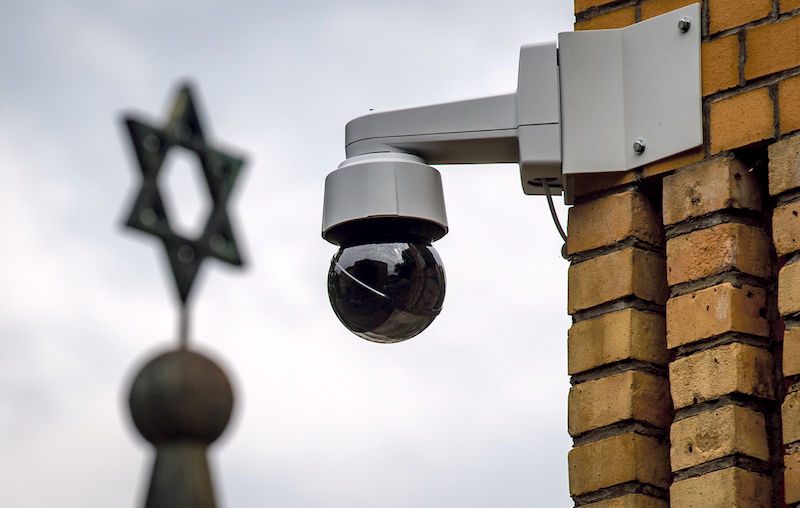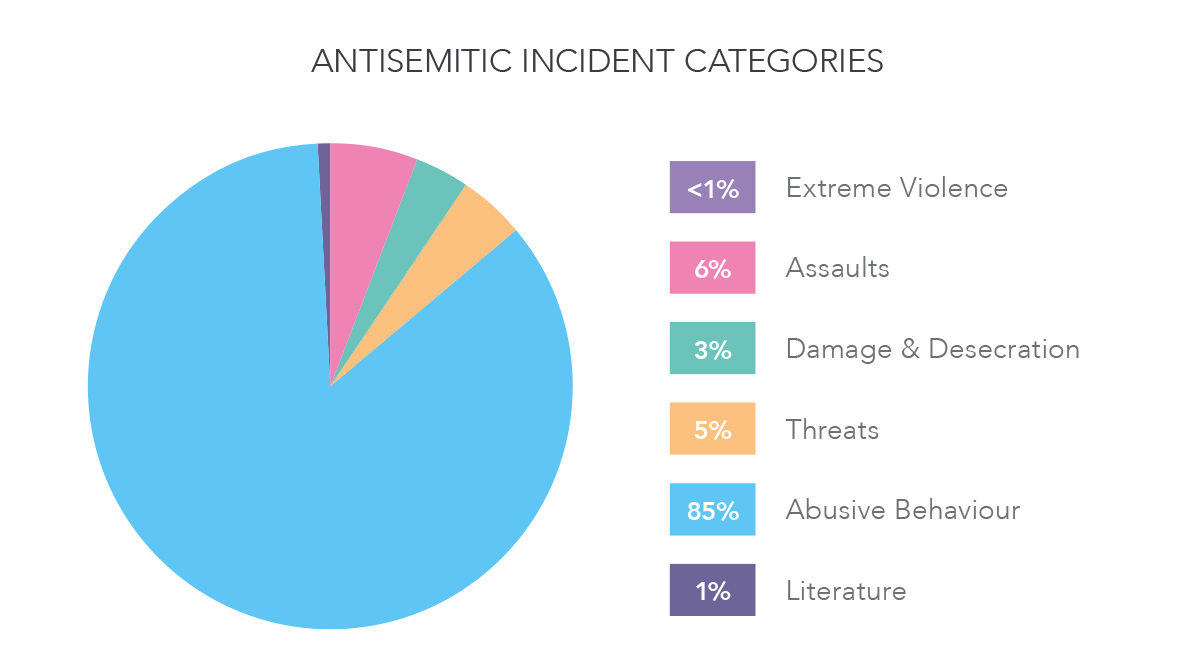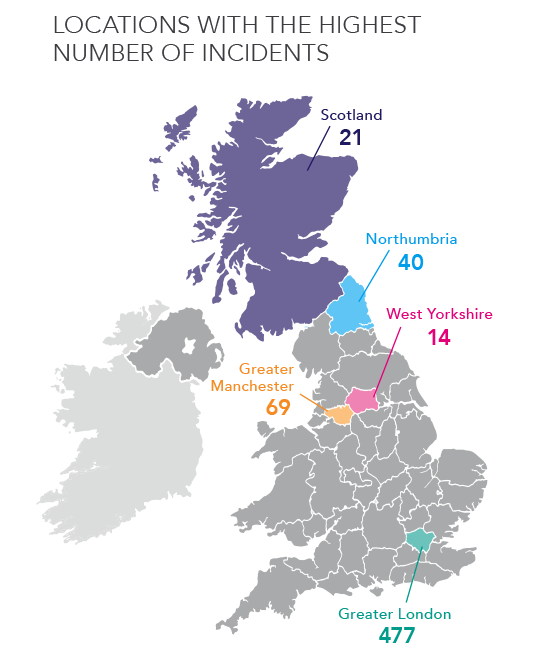Lockdown led to fall in antisemitism – but new methods of attack
Latest CST antisemitism stats show impact of lockdown was a near-halving in assaults, but the introduction of new ways of spreading hate, including communal events being 'hijacked'
Lockdown led to less antisemitic incidents recorded the first half of 2020, according to the organisation charged with protecting Britain’s Jewish community, but also introduced new lines of attack for anti-Semites.
In the latest half-yearly update from the Community Security Trust (CST), figures from January to June show that there the number of antisemitic assaults almost halved, with 47 incidents recorded, compared to 85 in the first half of last year.
The lowest numbers were recorded in March and April, when all but essential workers were told to “stay at home”, when the monthly total fell below 100 for only the third time in four years.
Likewise, there were 28 percent less antisemitic threats, 28 percent less incidents involving damage or desecration to Jewish property, and 50 percent fewer instances of mass-produced antisemitic literature.

However, CST chiefs said the pandemic had forced people to find new ways of communicating, and in so doing had introduced completely new categories of antisemitism, such as the ten reported instances whereby educational or religious online events were “hijacked with antisemitic content”.
The organisation said: “This is an entirely new type of incident, informed by a sudden widespread reliance on such platforms, demonstrating the ability, opportunism and speed of antisemitic offenders to adapt to a new social reality.”

Coronavirus also provided fertile ground for online antisemitic imaginings, the CST said, with conspiracies about Jewish involvement in creating and spreading the virus, to “simply wishing and hoping that Jewish people catch the virus and die from it”.
The report also highlighted the continuation of a long-term trend, whereby an ever-increasing proportion of total incidents is online antisemitism.

The proportion rose again during the first six months of 2020, up four percent. Online incidents now comprise 44 percent of the total, compared to 36 percent this time last year.
While the CST typically records most incidents of antisemitism in areas with large Jewish populations, it noted a worrying dispersal of hatred this week.

“CST has observed a broader geographical spread of antisemitic incidents, even though the overall total has diminished,” it said. “In the first six months of 2020, CST recorded an antisemitic incident in all but two Police regions across the UK, compared to nine in the first half of 2019.”
It said one reason for this trend may be the increased incidence of online antisemitism, because whereas the antisemite may be based elsewhere, or even abroad, the “incident” is reported in the region of the person reporting it.

The report’s publication follows a 48-hour Twitter boycott by some of Britain’s most prominent commentators, and the social media giant will have further pause for thought by the CST’s figures, which show that 238 instances of antisemitism on the platform were reported in just six months – equivalent to almost ten per week.
CST chief executive David Delew said it was “worrying that new antisemitic lies have emerged to add to old hatreds,” adding: “History tells us that antisemitism grows at times of great social upheaval. We need to ensure the same is not happening here.”

Thank you for helping to make Jewish News the leading source of news and opinion for the UK Jewish community. Today we're asking for your invaluable help to continue putting our community first in everything we do.
For as little as £5 a month you can help sustain the vital work we do in celebrating and standing up for Jewish life in Britain.
Jewish News holds our community together and keeps us connected. Like a synagogue, it’s where people turn to feel part of something bigger. It also proudly shows the rest of Britain the vibrancy and rich culture of modern Jewish life.
You can make a quick and easy one-off or monthly contribution of £5, £10, £20 or any other sum you’re comfortable with.
100% of your donation will help us continue celebrating our community, in all its dynamic diversity...
Engaging
Being a community platform means so much more than producing a newspaper and website. One of our proudest roles is media partnering with our invaluable charities to amplify the outstanding work they do to help us all.
Celebrating
There’s no shortage of oys in the world but Jewish News takes every opportunity to celebrate the joys too, through projects like Night of Heroes, 40 Under 40 and other compelling countdowns that make the community kvell with pride.
Pioneering
In the first collaboration between media outlets from different faiths, Jewish News worked with British Muslim TV and Church Times to produce a list of young activists leading the way on interfaith understanding.
Campaigning
Royal Mail issued a stamp honouring Holocaust hero Sir Nicholas Winton after a Jewish News campaign attracted more than 100,000 backers. Jewish Newsalso produces special editions of the paper highlighting pressing issues including mental health and Holocaust remembrance.
Easy access
In an age when news is readily accessible, Jewish News provides high-quality content free online and offline, removing any financial barriers to connecting people.
Voice of our community to wider society
The Jewish News team regularly appears on TV, radio and on the pages of the national press to comment on stories about the Jewish community. Easy access to the paper on the streets of London also means Jewish News provides an invaluable window into the community for the country at large.
We hope you agree all this is worth preserving.






















